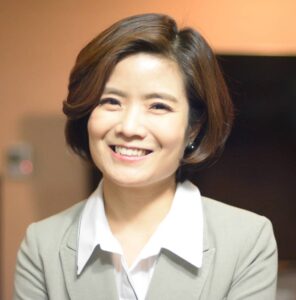Article Summary by Hye Youn Park
In today’s era, hospitals have solidified their position as central hubs closely intertwined with human life, overcoming numerous diseases through remarkable progress in science and technology. Despite being the focal point of human existence, discussions about hospital spaces often linger within the therapeutic tool perspective, emphasizing the effectiveness of treatment and efficiency in preventing infections. Amid concerns and criticisms about advanced technology’s significant influence on the medical paradigm, philosophical reflections on the essence of hospitals are scarce. Despite the potential paradox of hospitals seemingly treating humans while reducing and alienating human life to mere material existence, economic efficiency and treatment effectiveness often remain priorities.
Taking these considerations into account, this study critically examines hospitals as technotherapeutic spaces, drawing on the spatialization of diseases and Descartes’ concept of space while criticizing the paradoxical nature of hospitals using Heidegger’s technological reasoning. Beyond explicating the concept of “care,” traditionally understood through a methodological dimension in medical and nursing practices, the paper further argues for the foundational spatiality of hospitals by connecting it to Heidegger’s discourse on dwelling.
This study raises fundamental questions regarding the efficiency-driven nature of hospital spaces and provides an academic and theoretical foundation for implementing these insights into hospital architecture. It attempts to reflect on the ontology of technotherapeutic-centric hospital spaces that tend to be specialized and functionally biased, elucidating the intrinsic meanings of hospital spaces through diverse discourses. Significantly, it offers the groundwork for future interdisciplinary studies on hospital spaces from a phenomenological perspective, presenting a new paradigm for medical professionals and patients in the realm of hospital architecture.
Read the full article on the Medical Humanities journal website.
 Hye Youn Park is an adjunct professor of philosophy at Sungkyunkwan University in South Korea and a senior researcher at the Hybrid Future Culture Institute of the same university. She also works as a nurse at Seoul National University Hospital. She graduated from Seoul National University’s College of Nursing and received her Doctor of Arts degree from Sungkyunkwan University in 2021, with a thesis that elucidated the space of Seoul National University Hospital from an architectural phenomenological perspective. Her research interests currently focus on the issues of dwellings and architecture from architectural phenomenological and philosophical perspectives. Simultaneously, she is keen to approach the problems surrounding human illness and death cross-disciplinarily based on phenomenological theory. She teaches Applied Phenomenology at Sungkyunkwan University, a course that applies phenomenological theories to architecture, cities, human illness, and death, and helps students find ways to change fundamental paradigms.
Hye Youn Park is an adjunct professor of philosophy at Sungkyunkwan University in South Korea and a senior researcher at the Hybrid Future Culture Institute of the same university. She also works as a nurse at Seoul National University Hospital. She graduated from Seoul National University’s College of Nursing and received her Doctor of Arts degree from Sungkyunkwan University in 2021, with a thesis that elucidated the space of Seoul National University Hospital from an architectural phenomenological perspective. Her research interests currently focus on the issues of dwellings and architecture from architectural phenomenological and philosophical perspectives. Simultaneously, she is keen to approach the problems surrounding human illness and death cross-disciplinarily based on phenomenological theory. She teaches Applied Phenomenology at Sungkyunkwan University, a course that applies phenomenological theories to architecture, cities, human illness, and death, and helps students find ways to change fundamental paradigms.